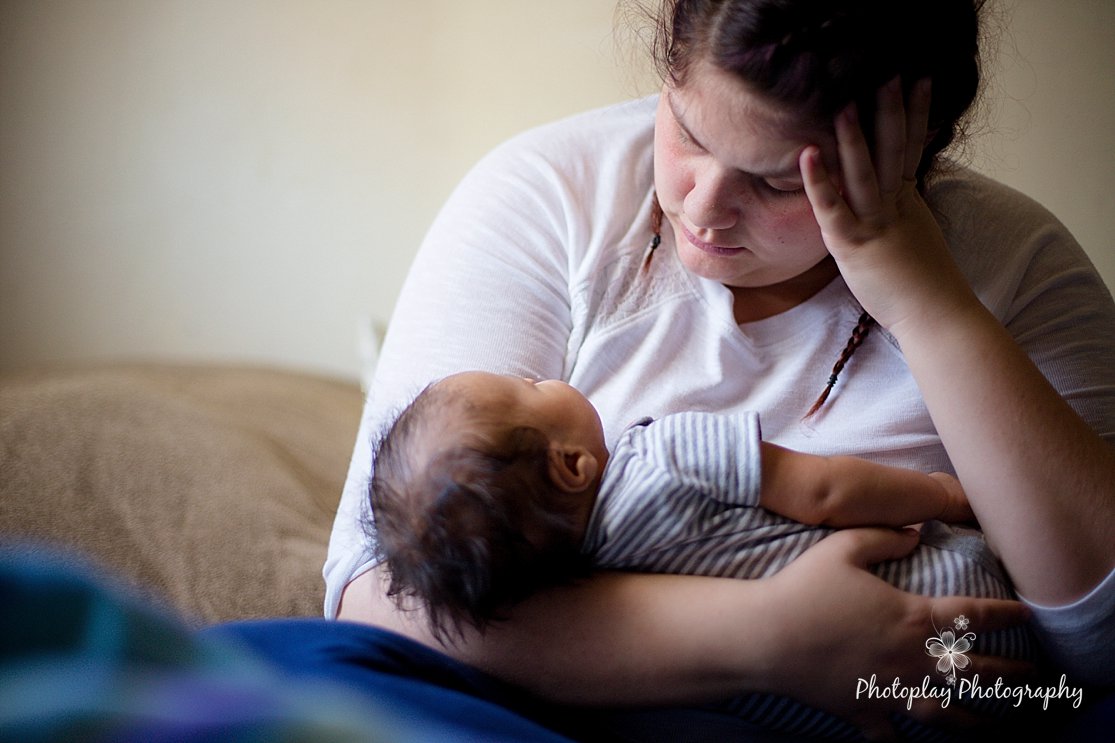I recently watched the heart wrenching documentary, “When the Bough Breaks,” a film about postpartum depression and psychosis. It sheds light on an issue that effects 1 in 7 women and I was one of those women.
When my first son was born over 20 years ago very little was known about postpartum depression which made it particularly hard for me and my family. I was a young, single mother and I lived with my mother and my sisters at that time. I remember when they handed my son to me for the first time and I felt nothing. None of the joy I thought I would feel when I finally held this tiny person I had been waiting 9 months to meet. It was like I was in a fog and it felt so unreal. For several months after his birth I wanted nothing to do with him. I was overwhelmed and didn’t know how I could be expected to take care of this tiny, helpless creature.
Logically I knew I needed to take care of him and I felt horrible that I didn’t want him so I did take care of his basic needs, but I didn’t want to hold him, snuggle up to him and smell that fresh baby smell or rub his soft hair against my check the way I had done with other people’s babies.
I couldn’t handle when he would cry and I would often just leave the room and let him cry until he finally fell asleep, sweaty and exhausted from crying. It was the worst at night because I would feel guilty about letting him cry when other people were trying to sleep and so I would do my best to soothe him, but I would often feel frustration and resentment and on more than one occasion I fantasied about slamming him into a wall just to make it stop. I felt like I must be the worst mother on earth, “who could possibly think such horrible thoughts about their own baby?”
I didn’t know about postpartum depression and neither did my family. They just thought that I couldn’t handle being a mother and they would get very mad at me, until my sister read an article about postpartum depression and recognized the symptoms that she saw in me.
I didn’t get treatment at that time because we still didn’t know much about it (resources being what they were and me being young and not having the wisdom to know where to look), but knowing what was wrong with me made a huge difference for me and for my family. I got a lot more support and eventually I started to feel better. I started to enjoy my baby and create the bond that I wasn’t able to manage from the beginning. I am so very grateful that I never harmed myself or my child, but I still feel guilt for not being the mother that my baby deserved.
I have never talked about it and while watching the film I found myself getting very emotional. I had no idea that it still effected me and I was inspired to share my story and let others who may be going through postpartum depression know that they are not alone and it is not your fault. Support is available and we are here to help.
Postpartum Depression can happen to anyone without warning, but some of the risk factors include:
- A history of postpartum depression
- Poor support from family and friends
- High stress
- Physical limitations or problems after childbirth
- Depression during pregnancy
- Family or personal history of anxiety or depression
- Bipolar disorder
- A traumatic pregnancy or birth
- Issues with infertility
- A history of domestic violence, sexual or other abuse
- A traumatic childhood
If you think you might be at risk you may want to consider placenta encapsulation which can help with hormone regulation after birth and if you don’t have good support at home a postpartum doula may be a good option for you.
Other resources and information about postpartum mood disorders including:
St. Louis Behavioral Medicine Institute
www.slbmi.com
(information under Women’s Wellness Program)
Missouri | Postpartum Support — PSI
www.postpartum.net/locations/missouri/
SSM Health — Moms Supporting Moms
MOMS Line (314-768-MOMS)
www.ssmhealth.com/news/momsline/
Postpartum Progress
www.postpartumprogress.com
National Suicide Prevention Lifeline
1-800-273-8255


 Email
Email